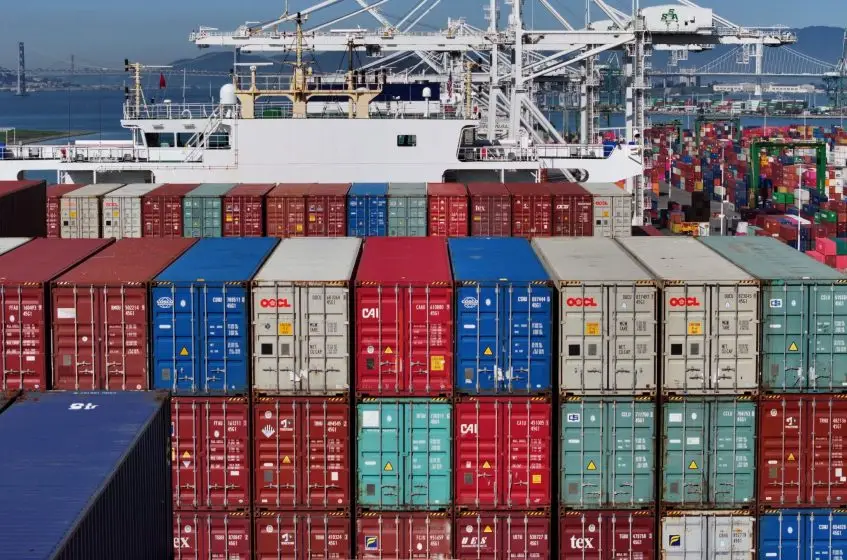Professor Heiwai Tang, Mr Benson Lam, and Mr Cyrus Cheung
25 September 2024
Now that the gig economy has become a global trend, striking a delicate balance among labour rights, business interests, and technological advancements is a focal point for policymakers around the world. According to Statista data, gig workers are estimated to make up 51% of the American workforce by 2027. In Hong Kong, as more and more people take on short-term contract and freelance jobs, there is room for improvement in the conventional labour protection system.
The interactions of labour rights, commercial interests, and technology are so complex that policymakers and industry leaders must walk a fine line to find the right balance. On the one hand, technological advancements and low costs of gig work provide the conditions for the take-off of the platform economy, which, in turn, has created a great variety of flexible, autonomous jobs as alternative sources of income beyond traditional employment. On the other hand, the market dominance of platform companies has drastically weakened the bargaining power of gig workers, who find themselves at the mercy of the companies.
Against this backdrop, this article aims to give an overview of changes in labour laws in Mainland China, the US, the UK, and Singapore, in an effort to spark further policy discussions on the gig economy. Admittedly, local situation varies across countries while policy outcome remains to be seen. While referencing experiences from overseas, it is essential to consider the local situation so as to balance business innovation and development against the need to protect gig workers’ interests by setting a sustainable development framework.
Taking a page from the Mainland, the US, the UK, and Singapore
The gig economy is thriving in the Mainland. In a recent internal letter, Meituan CEO Wang Xing reportedly disclosed that in 2023, a total of 7.45 million food delivery riders received remuneration exceeding RMB80 billion from the Meituan platform. Apart from these riders, gig jobs like ride-hailing drivers or content creators are also very common in the Mainland. The general public is increasingly concerned about the social responsibility of big platform honchos regarding the protection of gig workers’ rights. Under the guidance of departments such as the All-China Federation of Trade Unions, the online food delivery platform Ele.me signed the industry’s first collective contract covering its entire service network with more than three million riders in July 2023. This action was taken in response to riders’ concerns about protecting workers’ rights, insurance benefits, grievance redress channels, etc. Ele.me has now established a dispute arbitration centre in Shanghai to optimize its internal dispute resolution mechanism.
In the face of the expanding gig economy, the Chinese government has come to play a prominent role in protecting labour rights and benefits. In 2024, the Ministry of Human Resources and Social Security issued a series of documents, including the Guidelines for Guaranteeing the Rest and Labour Remuneration Rights and Interests of Workers in New Forms of Employment and the Service Guidelines for Safeguarding the Rights and Interests of Workers in New Forms of Employment. These guidelines define the rights of “workers under new employment arrangements” in three areas — wage standards, rest time, and channels for rights protection. The government policy stipulates that salaries of workers in new forms of employment should match local minimum wages per hour. If workers are required to work on statutory holidays, they should receive higher wages than for normal working hours. To ensure that workers have necessary rest time, the regulations mandate that once a worker’s hours reach the specified limit, platforms must immediately stop sending them orders for a certain time. If their labour rights are compromised, these workers can seek protection through the company’s internal dispute resolution process or through rights protection services provided by trade unions, relevant departments, and agencies.
In the US, innovation and technology enable companies to leverage digital platforms to develop their markets while the government’s role lies in ensuring fair labour practices. Generally speaking, only “employees” are protected by federal and state labour laws. However, some better-developed states have put in place their own legislation to protect gig workers’ rights. For example, New York passed the rule in 2023 to significantly adjust the minimum pay rate of delivery workers from US$7.09 to US$17.96. Unfortunately, the city’s decision drew ire from the industry: Platform companies such as Uber Eats, DoorDash, and Grubhub have filed lawsuits with US courts. Meanwhile, the companies are transferring the costs of raised wages to restaurants and consumers. With the rise in delivery fees, consumers have started to order less through food delivery platforms, leading to livelihood difficulties for delivery riders.
Labour relations in the UK encompass three types of employment classification: employees, workers, and the self-employed. In 2016, Uber drivers took their employer to court, claiming that they should receive such benefits as paid annual leave and minimum wage protection. After six years of litigation, the UK Supreme Court ruled that the drivers were workers rather than self-employed persons. Uber nevertheless still insists that the ruling only applied to drivers using its app in 2016, not all its current drivers. The Labour Party, which recently came to power, had put forward progressive proposals during the election in Labour’s Plan to Make Work Pay: Delivering a New Deal for Working People. The party pledged to ban exploitative zero hours contracts and require employers to provide staff with contracts that state predictable hours, based on a 12-week reference period. Nonetheless, some gig workers may prefer to retain the flexibility of being classified as “workers” rather than “employees”. Whether the intermediate employment classification, i.e. “workers”, should be abolished remains a debatable issue.
Singapore is well known for its business-friendly environment and its entrepreneurship. It places great importance on technological advancement, laying the foundation for the platform economy. To safeguard labour rights, the country recently passed the Platform Workers Bill to provide protections for its approximately 70,000 platform workers. Similar to the UK, the Bill classifies “platform workers” as a separate legal category that falls between employees and the self-employed to ensure their Central Provident Fund contribution rate will rise to match that of current employees and employers. Platform operators are required to provide their platform workers with work injury compensation insurance at the same level of coverage as employees. In addition, the Bill stipulates the formation of Platform Work Associations to ensure collective bargaining rights, including negotiations with platform operators and the signing of legally-binding collective agreements. Reportedly, Singapore may eventually consider extending the scope of the Bill to cover other freelancers.
While China, the US, the UK, and Singapore have attempted to introduce policy measures to protect the rights of gig workers, differences exist among the regulations. In comparison, the policies of China and Singapore involve more negotiations between employers and employees, whereas those of the US and the UK do not. This may be due to the fact that gig worker protection policies are a more contentious issue in the US and the UK. In any event, policy measures to protect the rights of gig workers have yet to fully mature and the outcomes of their implementation remain uncertain.
Flexible regulatory framework essential to robust growth
How to regulate the platform economy is another major issue. According to Peking University’s Institute of Digital Finance, regulation should aim to strengthen the platform economy and to facilitate its healthy growth, rather than hindering its future growth. It is therefore necessary to establish a comprehensive governance mechanism for the platform economy. This should include the formulation of specialized and systematic regulations as well as a clear demarcation of departmental responsibilities so as to avoid the phenomena of “campaign-style regulation” and “regulatory competition”. Moreover, to prevent over-intervention in normal market operations, it is advisable to distinguish between “regulation of the platform economy” and “antitrust” — the former being a proper function for maintaining market order and the latter being a non-normal measure for restoring market efficiency.
The success of the platform economy hinges on the creation of reasonable income for companies and gig workers while consumers benefit from highly efficient platform services, altogether delivering a triple-win. Given the dominant position of platform operators, the government must play an active role in ensuring a balance among labour rights, business interests, and technological applications. That being said, the flexibility of the regulatory framework is crucial since over-regulation may compromise the effectiveness of platforms in managing supply and demand, producing a triple-lose outcome for operators, gig workers, and consumers. Finding balance on a seesaw is no easy task. How to build a sustainable development framework for the gig economy remains an issue in urgent need of further deliberation.
References
黃益平、鄧峰、沈艷、汪浩(2022)〈超越「強監管」──對平台經濟治理政策的反思〉,北京大學數字金融研究中心







